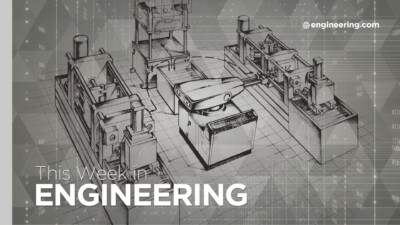AI becoming vital for being competitive in the AEC industry
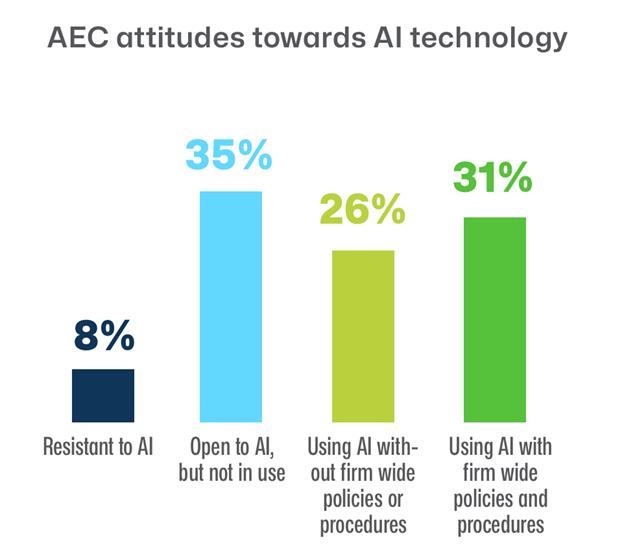
For engineering firms, artificial intelligence (AI)- driven tools and other intelligent technologies are more than just a novelty or a luxury; they’re a near-imperative to keep pace in today’s highly competitive business environment, according to a newly released benchmarking report for the architecture, engineering, and construction (AEC) industries.
Findings from the 2024 edition of the AEC Inspire Report from Unanet, the business software company for which I serve as executive vice president for AEC, underscores just how important it is for firms to integrate technologies like AI across their operations, from business development to project execution to strategic planning. “One thing is certain,” the report asserts. “tech-advanced [AEC] firms that can harness the full potential of emerging technologies are the ones best positioned to accelerate growth, overcome challenges, and navigate the unknown. Such companies are not only operating for today; they are prepared for tomorrow.”
Based on survey responses collected this past spring from more than 330 senior-level AEC executives, the report (available for free download here) provides a revealing look at the trends, best practices, strategic priorities, and other dynamics shaping these three industries. It gives engineering firms the means to measure themselves against their peers across the industry.
AEC findings
The results highlight a strong sense of optimism across the AEC industries and an increasingly clear business case for firms to embrace technologies like AI. For example:
- Most AEC firms feel good about the current business environment. A large share — 86% — of respondents hold an optimistic business outlook, and 42% say they’re “very optimistic.”
- A winning business climate. Most firms, 58%, report a proposal win rate of more than 50%, while a much larger share, 72%, project a win rate above 50% for the year ahead, another sign of growing optimism. Those most confident in their future are firms that leverage technology because they are more likely to have keen insights into all aspects of their company’s resources, projects, and pipelines. These firms are better positioned to weather challenges and economic unpredictability while having greater confidence in their ability to forecast their business and manage resources.
- Despite a generally positive outlook, 39% of AEC firms are concerned about the economy. Operational efficiency and talent recruiting and retention are other issues that are particularly concerning.
- M&A (merger and acquisition) is on the menu, especially on the buy side. Half of surveyed AEC firms say acquisitions are of interest to their company in the year ahead, while just 5% are interested sellers. Among engineering firms, 40% say they’re interested buyers.
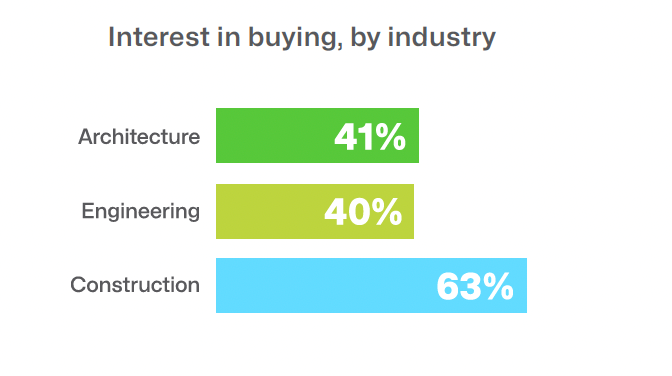
On the technology front, “it may be tempting to stay the course, to tackle change in slow increments,” states the report, “but this approach will not serve for much longer.”
Close to half of AEC firms — 48% — qualify as “tech-advanced” because they meet
at least three of the following criteria:
- Data-driven, regularly using data for business management, decision-making, and performance assessment.
- Cloud-dominant, with more than 50% of tools and applications based in the cloud.
- Fully integrated, with complete integration of platforms and applications across all systems.
- AI-mature, as active users of AI with comprehensive firm-wide policies and procedures in place to guide and govern AI usage.
More than half of AEC firms are using AI to some extent, while another one-third are open to using it but are not currently doing so. Our report reveals a strong business case for firms to implement AI:
- Close to one-third of firms — 31% — are using AI with policies and guidelines in place as guardrails. However, 26% use AI without formal oversight policies, unnecessarily inviting legal, security, and compliance risks.
- Architecture firms are twice as resistant to implementing AI as construction and engineering firms.
- AI-mature firms are much more prolific project proposal producers, averaging 263 per year compared to 144 for less AI-savvy firms. They also win more projects and expect higher future win rates than less AI-savvy firms.
To deliver these kinds of benefits, AI requires firms to establish a strong foundation that includes not only internal policies to guide AI usage but also robust employee training on AI and high-quality data, underpinned by clear data stewardship policies. The report states, “Organizational data governance is foundational to AI implementation, and AI implementation is a must in today’s data-driven reality.”
Findings Specific to Engineering Firms
Engineering firms show deep concern about the current state of their workforce. Compared to their counterparts in architecture and construction, engineering firms struggle more with recruiting and more frequently list recruiting as a top human resource challenge. Although they share the AEC industry’s overall sense of business optimism, the workforce issue is pressing enough for many to turn down work for want of labor. As the report notes, firms can attract and retain talent by offering employees access to cutting-edge technology in their day-to-day work and by partnering with local colleges and trade schools.
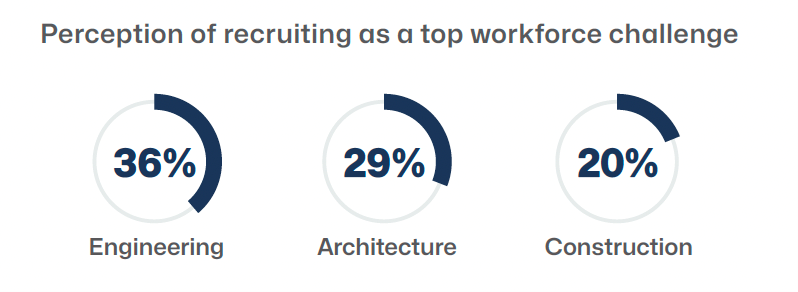
A lack of sophisticated forecasting practices exacerbates the talent shortfall. Engineering firms most frequently rely on Excel spreadsheets to forecast labor resources and are less likely to be able to predict their growth rate. Troublingly, one-third of engineering firms say they cannot project their growth for the coming year.
Engineering firms also appear deliberate in adopting AI and supporting AI policies. Less than one-quarter of those we surveyed said they’re using AI with policy guardrails in place. As for the areas in which they expect to realize the most benefit from using AI, data analysis and content generation top the list.
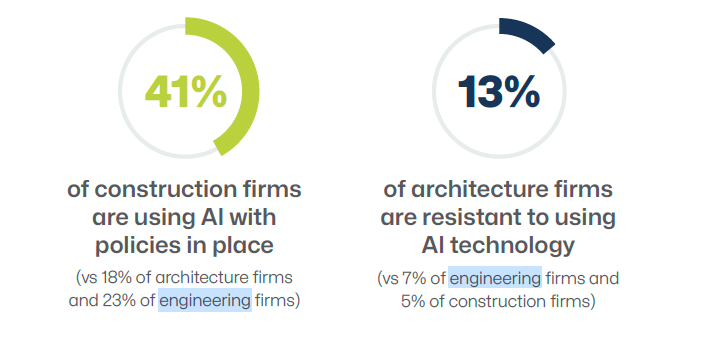
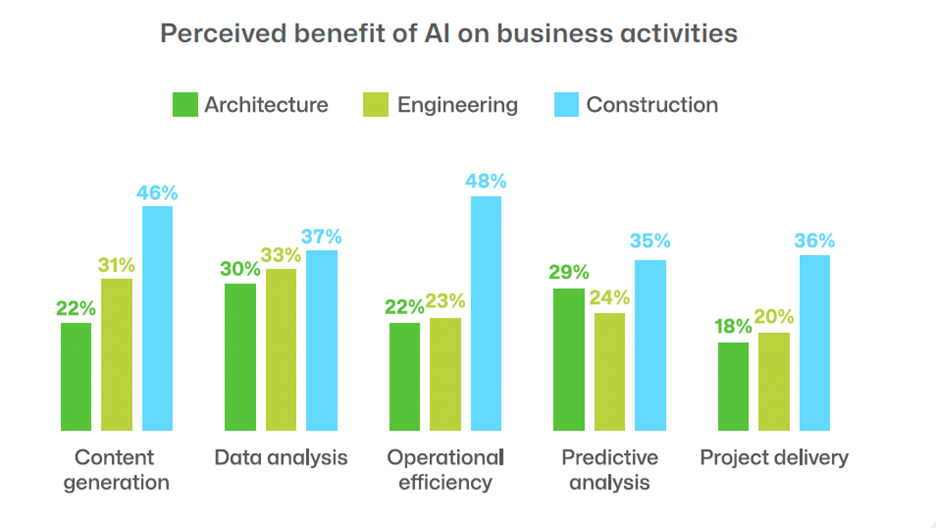
Just how important are AI and digital technologies generally to success? For engineering firms, the report concludes, “Technological transformation is essential to maintaining competitive footing and operational resilience in the face of a growing talent shortage.”
About the author

Akshay Mahajan is Executive Vice President, AEC, at Unanet, a company that creates business software solutions for architecture, engineering and construction firms, and government contractors. For more information, visit https://unanet.com/.


